| Support independent journalism |
| |
|
| 
|
 |
|
|
First Thing: Canada leaders agree to unite against Trump tariff threat |
|
| Deputy PM says ‘we need to be smart, strong and united’. Plus: plastic lobbyists in rear-guard action |
|
 |
 Canada’s deputy prime minister and finance minister, Chrystia Freeland, speaks to reporters after a cabinet meeting on Parliament Hill, Ottawa. Photograph: Canadian Press/Rex/Shutterstock
|
|
Mattha Busby
|
|
| Good morning. Canada’s federal government and the premiers of the 10 provinces have agreed to work together against a threat by the US president-elect, Donald Trump, to impose sweeping tariffs on Canadian imports, with one official saying the country was already examining possible retaliatory measures. Trump has threatened to impose a 25% tax on all products from Canada and Mexico if the countries do not stop what he called the flow of drugs and migrants across southern and northern borders. Canada and Mexico are already examining possible retaliatory tariffs on certain items from the US should Trump follow through on his threat, according to reports. -
What are tariffs? A tariff is a tax on imports, or foreign goods brought into a country, and paid for by the importing companies. The way that tariffs work, in Trump’s mind, is that high tariffs will incentivize American companies to move their manufacturing from abroad to the US.
Democrats criticize Harris for ‘self-congratulatory’ review of election loss |
|
|
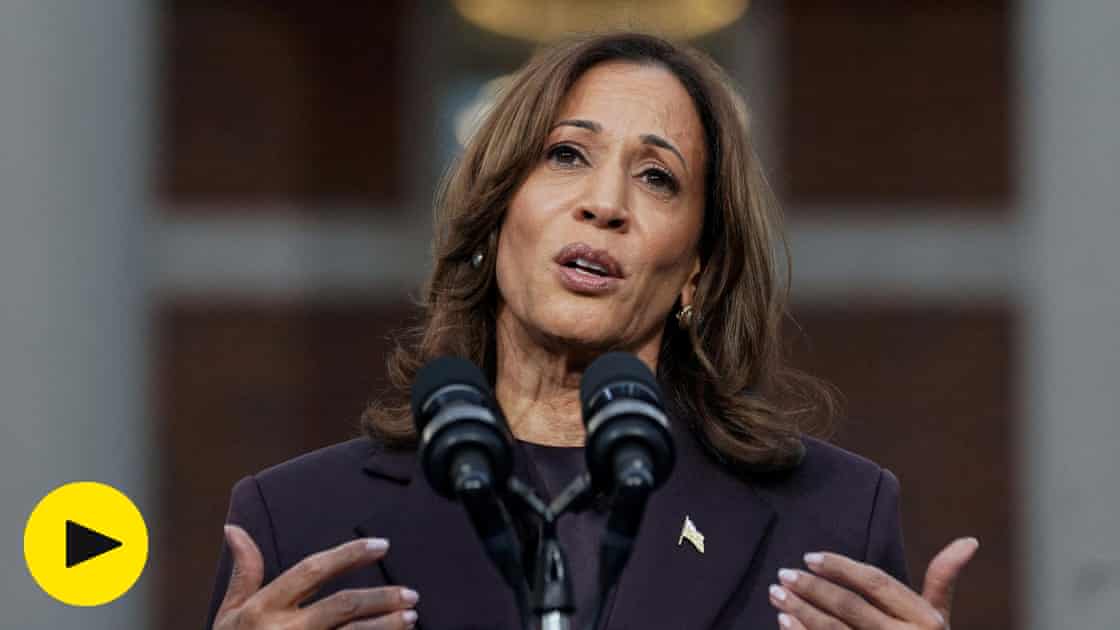 |
|
|
| Some Democratic figures have accused Kamala Harris’s campaign of being self-congratulatory after a series of recent public appearances from the candidate and her senior staff in which they declined to admit making any errors that could have contributed to her defeat. In a video call to thank campaign donors, Harris appeared to boast that the coalition assembled during her three-and-a-half-month campaign ranked among the “best political movements”. Lindy Li, a member of the Democratic National Committee’s finance team, called the Harris campaign “self-congratulatory” and said she was “stunned that there was no sort of postmortem or analysis of the disastrous campaign”. -
What did political commentators have to say? Jeet Heer, a writer for the leftwing Nation magazine, said: “Is it too much to ask for a little humility and self-reflection from the people whose strategies failed badly?”
‘Massive attack’ on Ukraine’s power network under way, says minister |
|
|
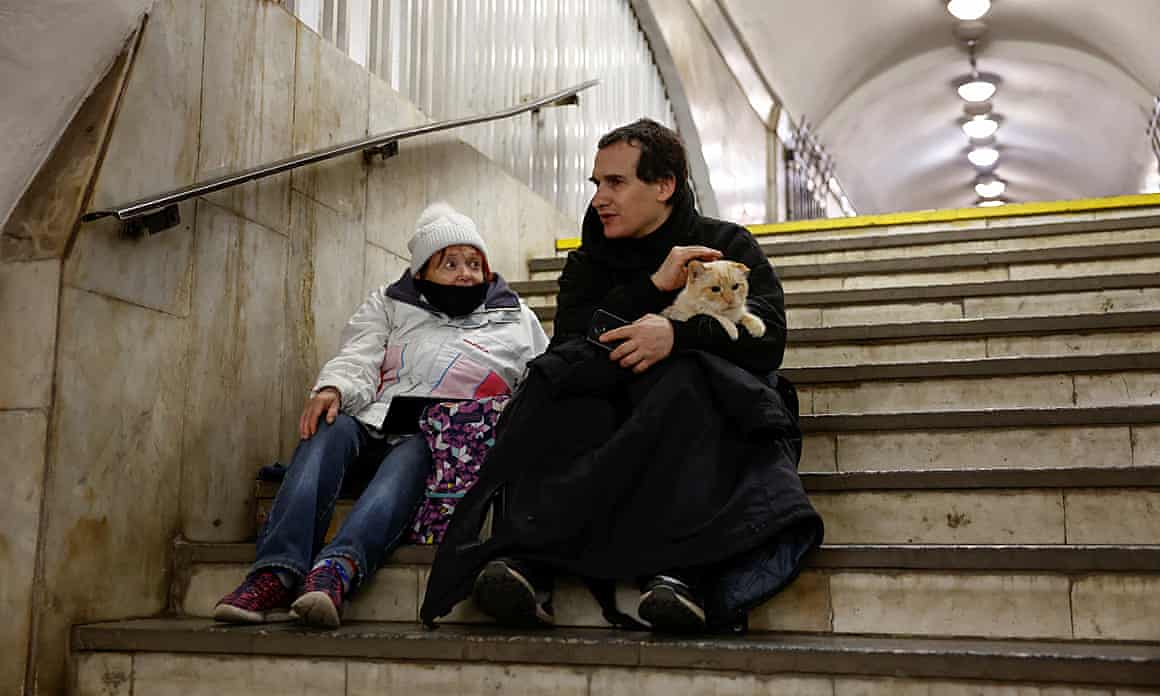 |
 People take shelter inside a metro station during a Russian attack on Kyiv on 28 November. Photograph: Thomas Peter/Reuters
|
|
|
| Ukraine’s power infrastructure is “under massive enemy attack” today, the country’s energy minister has said, after a nationwide air raid alert was declared due to incoming missiles. The national power grid operator Ukrenergo had “urgently introduced emergency power cuts”, German Galushchenko said, as temperatures across Ukraine dropped to freezing – leaving at least 1 million people without power in three western regions. Maksym Kozytskyi, the governor of Ukraine’s western region, reported energy infrastructure attacks after missiles were detected overnight headed for Kharkiv, Odesa and eight other regions. -
What was the damage? Missile debris was reported at two locations in Kyiv, but local authorities said air defences intercepted all of the missiles fired at the capital. Kyiv’s mayor, Vitali Klitschko, reported damage to property but no casualties.
In other news … |
|
|
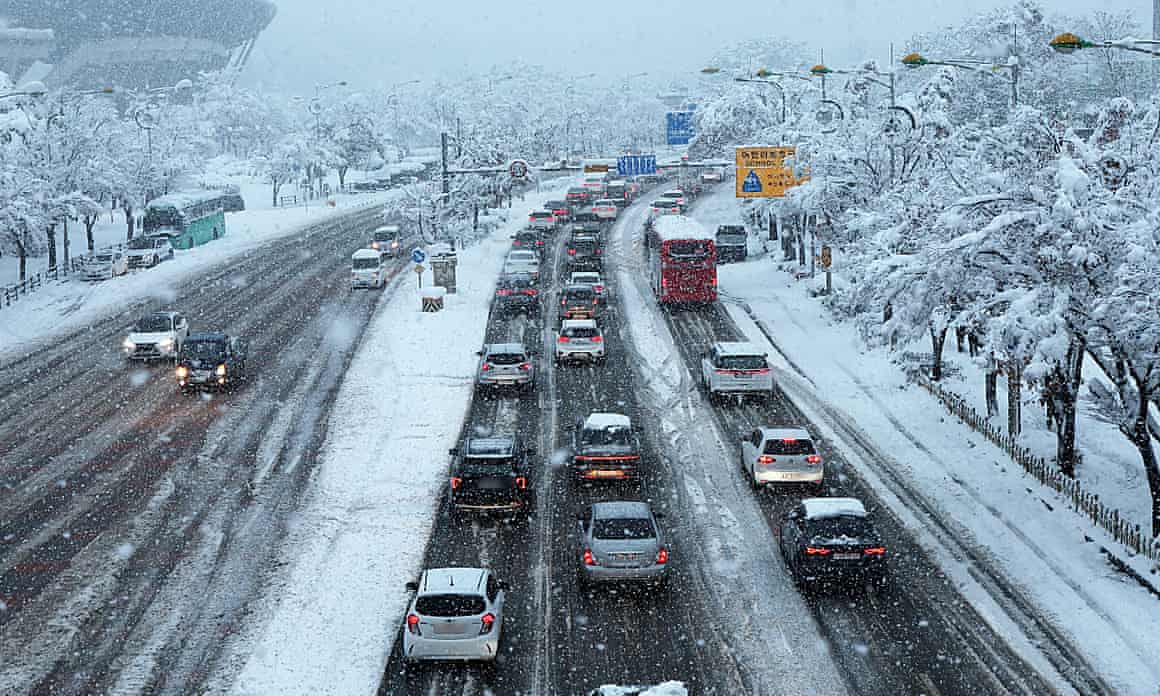 |
 Cars move slowly on a road in Suwon, 30km south of Seoul, South Korea, on Thursday during a second day of heavy snowfall. Photograph: Yonhap/EPA
|
|
|
-
South Korea grappled with heavy snowfall for a second day, with dozens of flights cancelled, ferry operations suspended and at least four people reported dead in a bitter winter, though conditions showed signs of easing. -
Colombian authorities working with dozens of other countries have seized 225 tonnes of cocaine in the space of six weeks, a global record for any single anti-narcotics operation. -
Three American citizens imprisoned for years by China have been released in a prisoner swap, the White House has said, announcing a rare diplomatic agreement with Beijing in the final months of the Biden administration.
Stat of the day: Number of US abortions fell by only 2% after wave of state bans – CDC report |
|
|
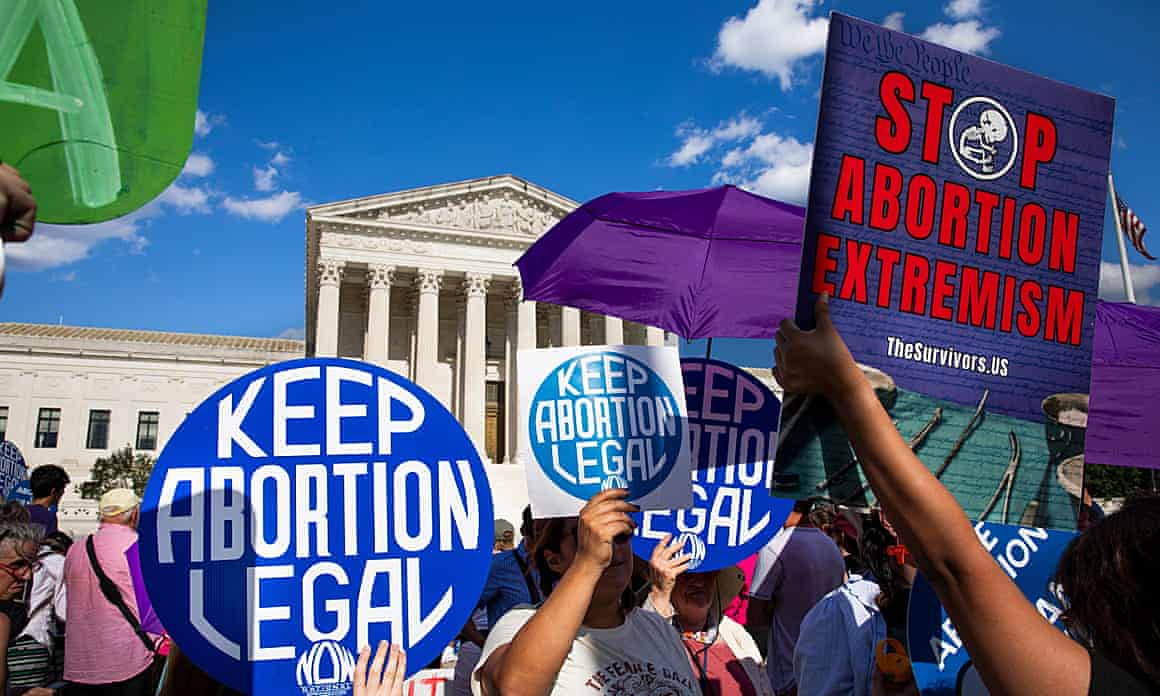 |
 Abortion rights supporters outside the supreme court in Washington DC on 24 June 2024. Photograph: Aashish Kiphayet/NurPhoto/Rex/Shutterstock
|
|
|
| Despite the wave of state abortion bans that took effect after the US supreme court overturned Roe v Wade in June 2022, the number of abortions performed in the US fell by only 2% that year, according to the first major report from the Centers for Disease Control and Prevention to tally abortion provision in the post-Roe United States. Don’t miss this: Disbelief in north Wales after dramatic arrest of US terror suspect |
|
|
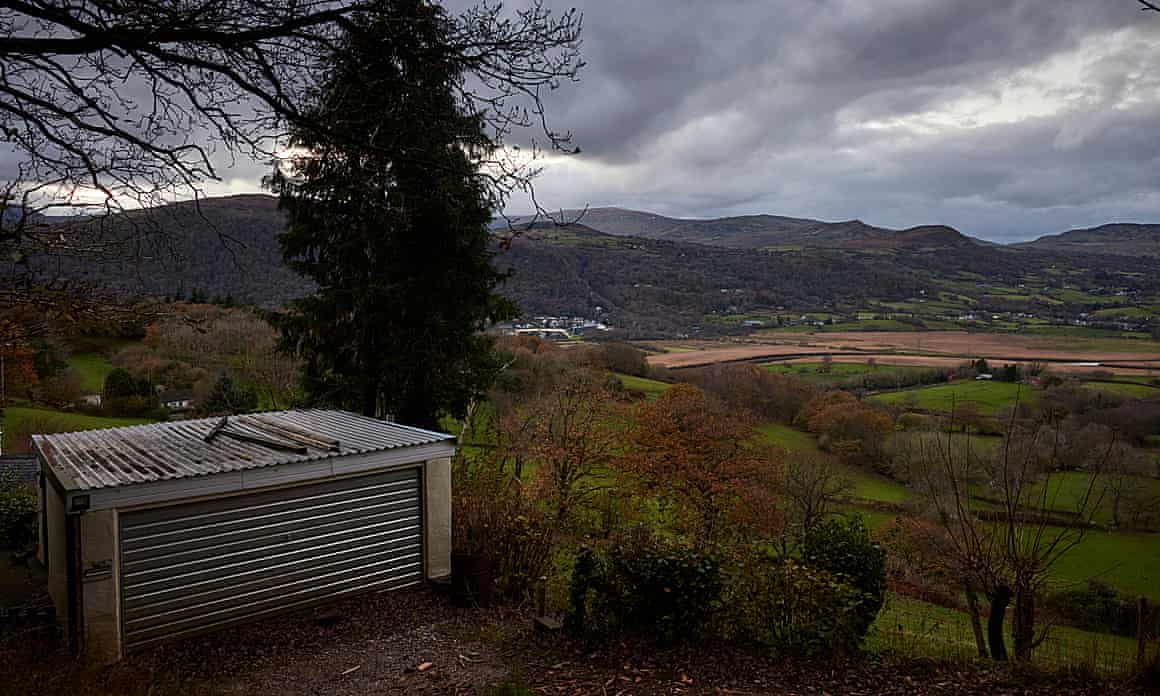 |
 The entrance to the house above Maenan in Conwy, north Wales, where it is believed one of the FBI’s most wanted fugitives has been arrested. Photograph: Christopher Thomond/The Guardian
|
|
|
| Maenan, in north Wales, is not a place where very much happens. But earlier this week armed police descended on this tiny settlement, leaving neighbours in “disbelief”. They learned that a man described by the FBI as an “animal rights extremist” whom they had sometimes seen near his home on the outskirts of the woods was in fact one of the agency’s most wanted men. … or this: ‘The science of fluoride is starting to evolve’ |
|
|
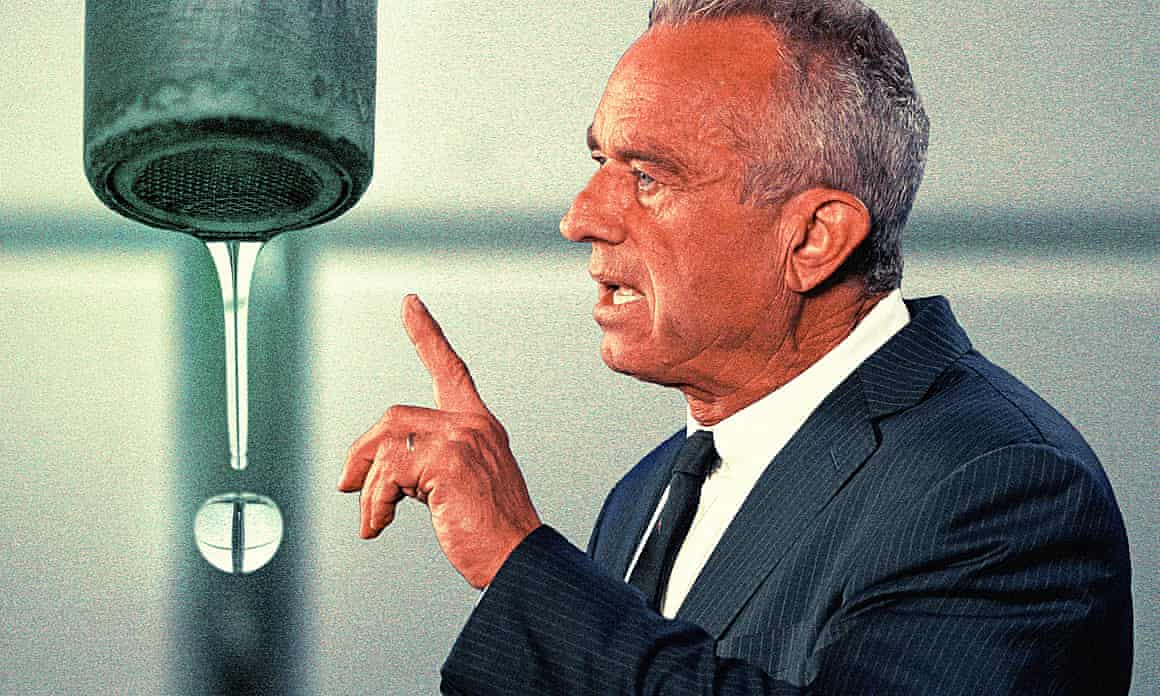 |
 Robert F Kennedy Jr, Donald Trump’s pick to lead the US health department, has described fluoride as ‘industrial waste’. Composite: Guardian Design/Getty
|
|
|
| A national conversation about fluoride’s health benefits exploded this fall after a federal toxicology report, court ruling and independent scientific review all called for updated risk-benefit analysis. In 2019, a study found fluoride exposure was associated with decreased IQ. “That gives you an indication that the science of fluoride is starting to evolve – it wasn’t set in stone 70 years ago,” the co-author said. Climate check: Plastics lobbyists make up biggest group at vital UN treaty talks |
|
|
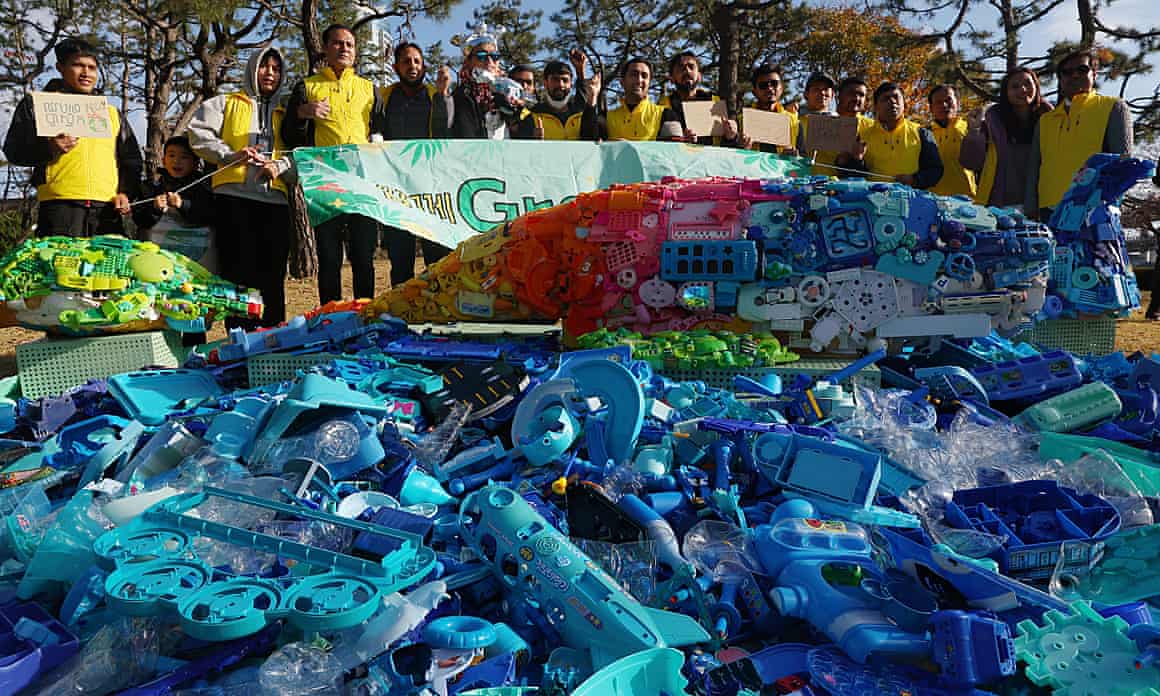 |
 Activists protesting outside the talks in Busan, South Korea, earlier this week. Photograph: Son Hyung-joo/AP
|
|
|
| Record numbers of plastic industry lobbyists are attending global talks that are the last chance to hammer out a treaty to cut plastic pollution around the world. The key issue at the conference will be whether caps on global plastic production will be included in the final UN treaty. Lobbyists and leading national producers are furiously arguing against any attempt to restrain the amount that can be produced, leaving the talks on a knife-edge. Last Thing: What happens to the natural world when people disappear? |
|
|
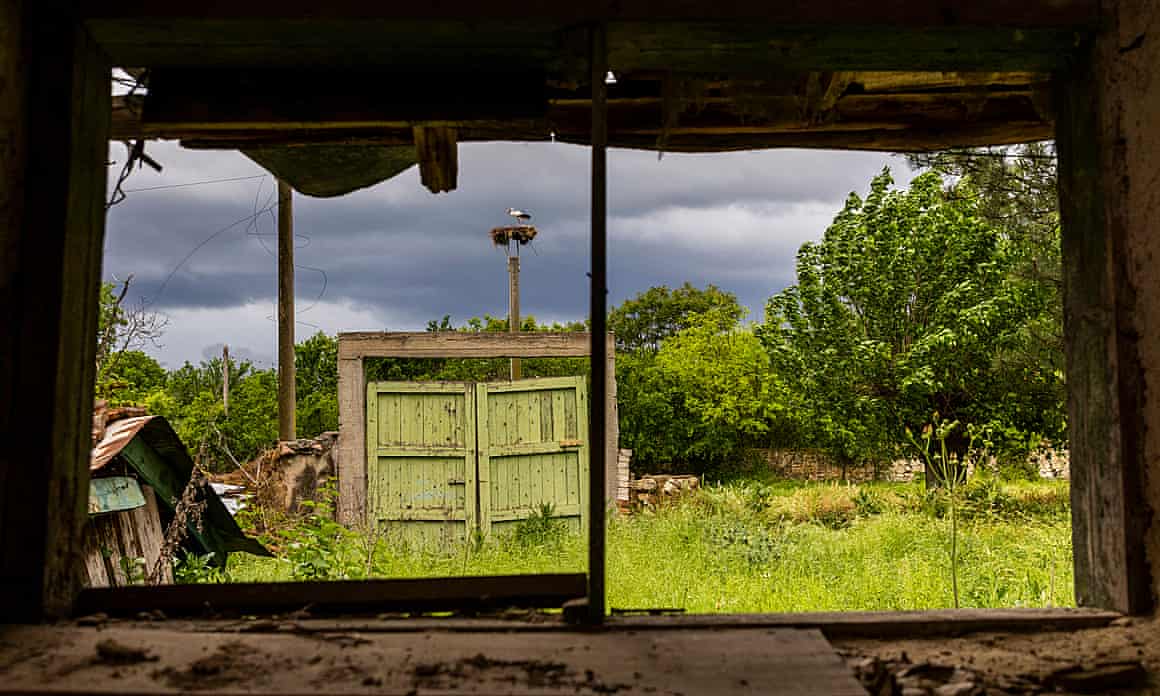 |
 A White Stork returns on its nest, as viewed through the window of a disintegrating shed in Tyurkmen, Bulgaria. Photograph: Malkolm Boothroyd
|
|
|
| Vast swathes of land worldwide are being left to be reclaimed by nature. To explore this trend, Tess McClure went to Bulgaria where post-communist urbanization has left almost 300 villages completely abandoned. The resultant environmental changes are subject to an ambitious research project. Sign up |
|
|
|
|
| First Thing is delivered to thousands of inboxes every weekday. If you’re not already signed up, subscribe now. Get in touch If you have any questions or comments about any of our newsletters please email newsletters@theguardian.com |
|